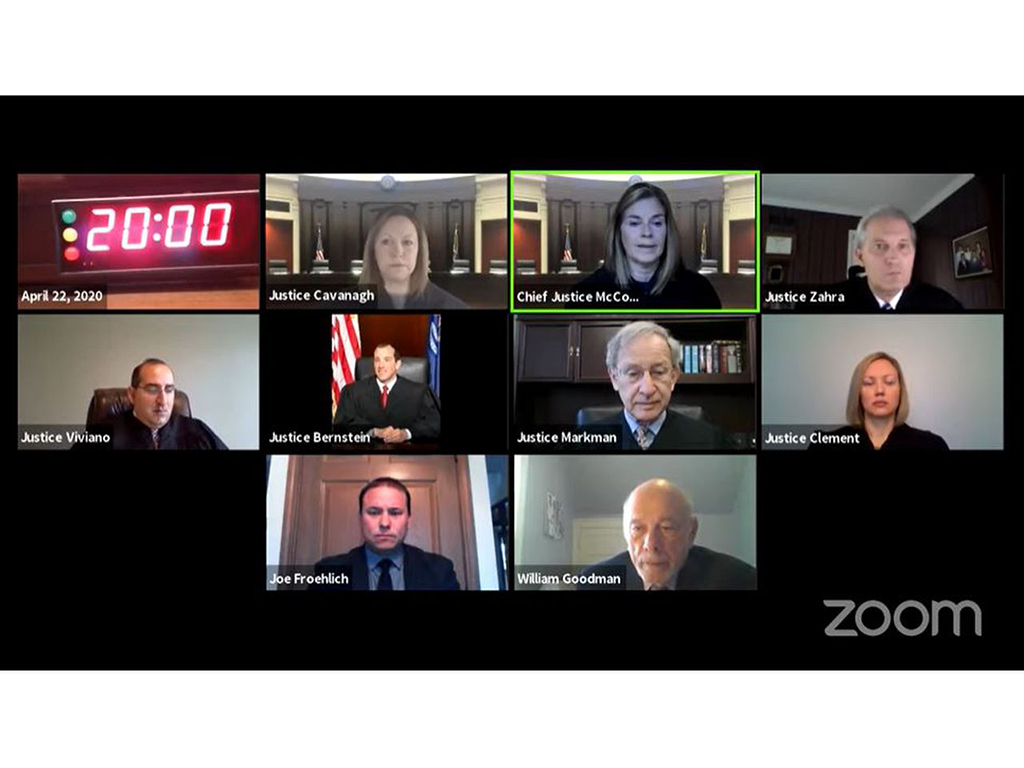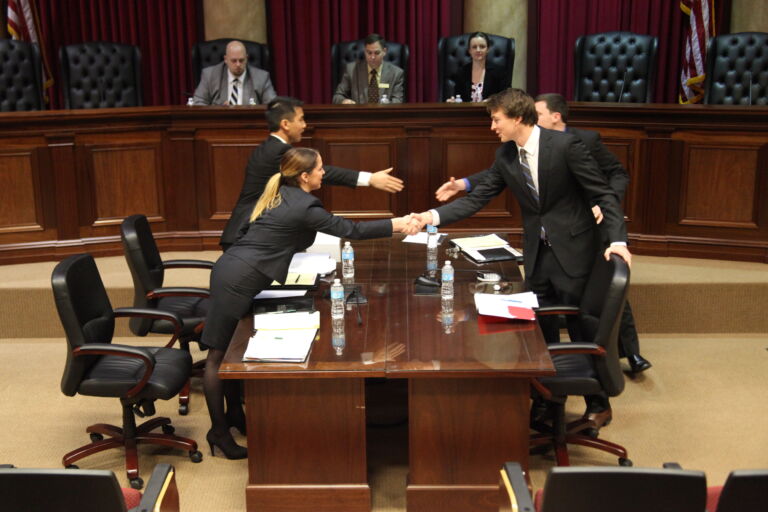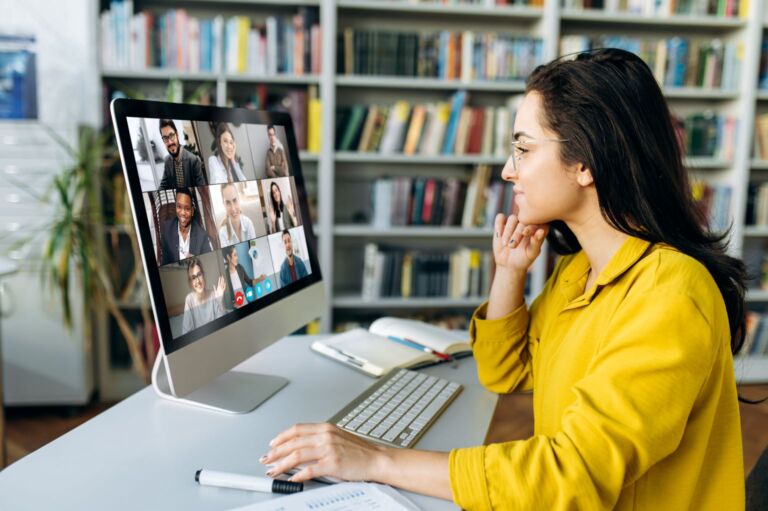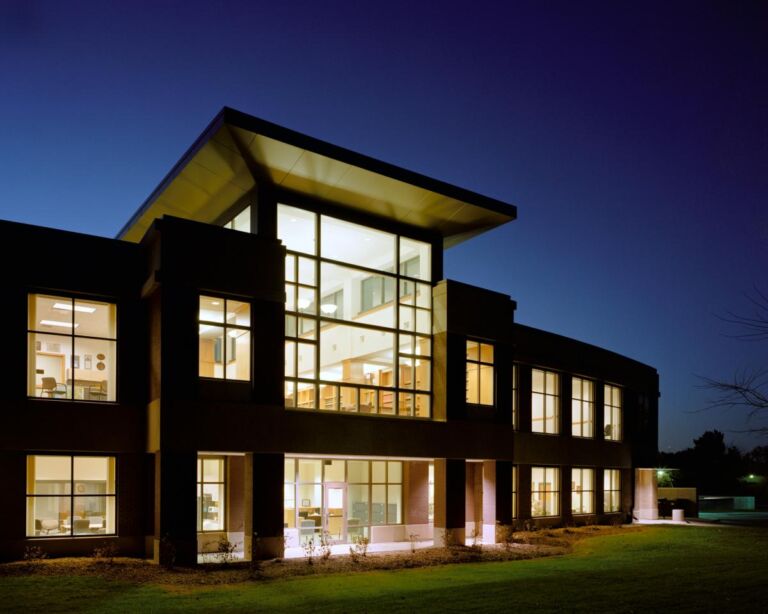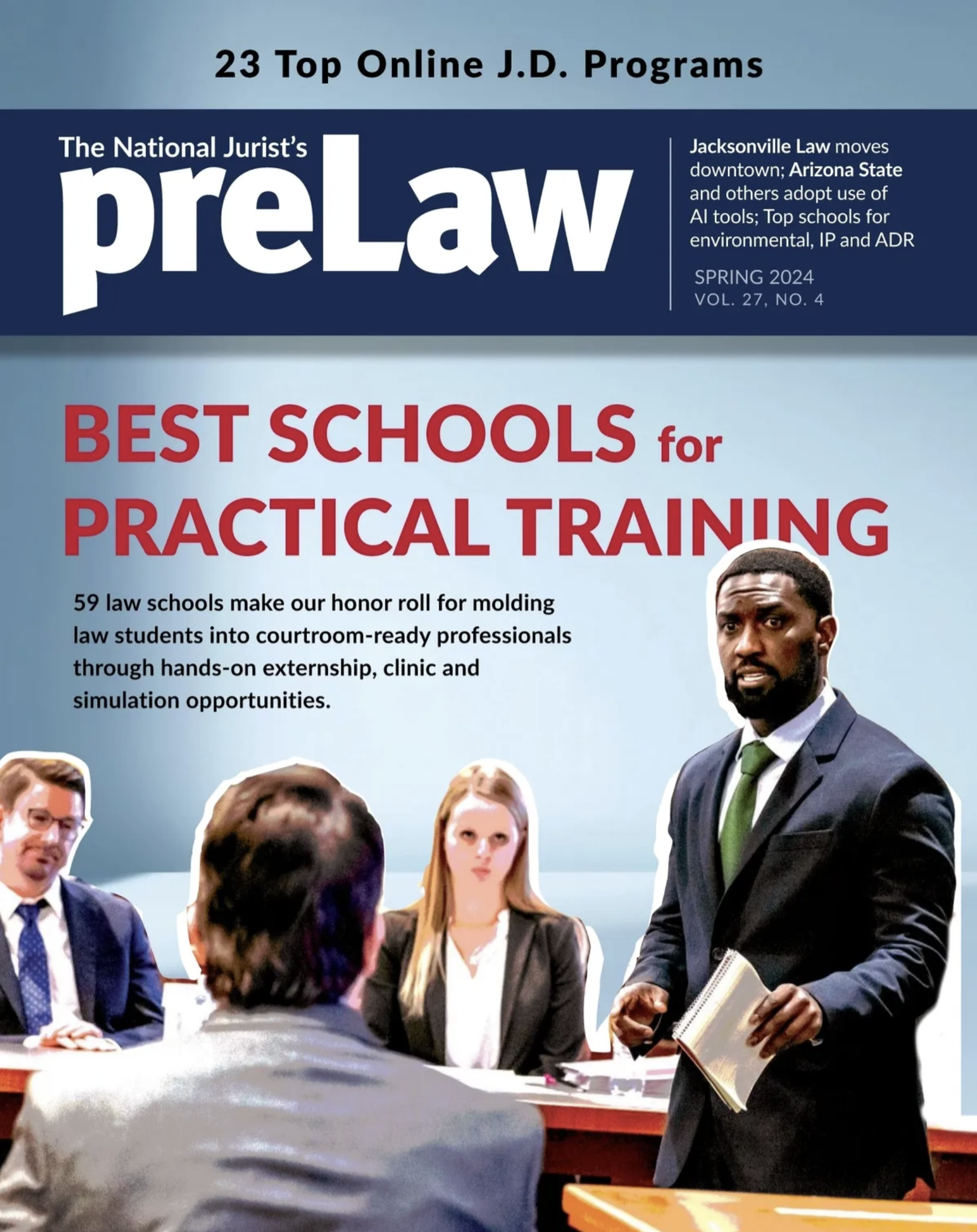Imagine this: You’ve graduated from law school and passed the bar exam. Now you’re preparing to start your first day at the law firm of your dreams. However, you’re not stepping into the actual law firm.
You’re working from home.
The pandemic has forced a monumental shift when it comes to how we work, legal jobs included.
As a recent Forbes article noted: “The coronavirus has turbocharged law’s move to a virtual workforce and distance learning. The well-fortified walls of resistance have been breached with breathtaking speed.”
Which could be a good thing for today’s law school students, who were forced to tackle the virtual world early and will soon be entering the workforce with more tech skills than previous lawyers had.
Mitchell Hamline School of Law in in Saint Paul, Minn., has offered a hybrid online J.D. program for years, well before the pandemic. The school says the goal now is to make it even better and use it to prepare graduates for this brave new world.
“I think one of the biggest changes that lawyers have seen over the last four to five months is that a lot of the hearings that they had live are now being done by Zoom online,” said Anthony Niedweicki, the school’s president and dean. “And so, giving our students that experience of doing Zoom and communicating with people using Zoom is probably going to be something that’s going to have a long-lasting affect within the court system.”
Niedweicki believes that this shift is anything but a bad thing. For one, the technology is making courts more accessible to more people. It’s also reducing the cost for lawyers, which means they can provide service to more people, particularly those who couldn’t afford to pay for it before.
“If they don’t have to travel to go to court, then it reduces the cost for their clients and allows things to happen more efficiently,” Niedweicki said.
While virtual learning does have shortfalls — it doesn’t allow for as much spontaneous communication, for instance — Mitchell Hamline is looking at ways to enhance that. No, you can’t chat in the hallways or pop into your professor’s office, but Mitchell Hamline is starting to implement new software such as Microsoft Teams and Slack that allows for collaboration or impromptu conversations among individuals and groups.
“People are able to communicate in a way that’s different than email and be able to collaborate in a way that more effective and more efficient,” Niedweicki said. “Students are going to be exposed to that now, faculty and staff are being exposed to that now and I think that’s the way that people in business and in law are already starting to work together. So, it’s great that we are able to expose our students to technology and teaching in ways that they’re going to see play out in practice.”
Across the nation, in southern California, another law school is well aware of the importance of finding alternative ways to effectively proceed in the current world we’re living in.
“Clinical programs are still operating,” said Robert Schwartz, assistant dean of admissions at UCLA Law. “They’re more important as ever, and they’re doing important work. At UCLA our criminal defense clinic in the spring actually successfully petitioned a federal court to have an immigrant released who was threatened by COVID. He had been detained at a processing center here in California. So, it’s important for you to get that message out that clinics are continuing to do their important work.”
It’s similar story in Philadelphia. The Drexel University Thomas R. Kline School of Law was able to continue to have students work on important programs and even compete in moot court competitions.
“The other elements of experiential education like moot court and trial team have adjusted,” said Dean Daniel Filler. “Drexel has a very strong trial program and what has been amazing is that these competitions are moving online and people are doing trials online, just like they’re starting to do in the real world.”
Many schools have also expanded their clinics during the pandemic. Mitchell Hamline is just one of the law schools inthe nation that has opened a COVID Clinic to help people who need legal assistance related to the virus.
“We are trying to adapt to the times and teach students how to be responsive to what’s happening at this point,” Niedweicki said.
At this point, students are interested in passing the bar exam and getting a job, but COVID-19 has forced law school to rethink how its career services departments will be able to provides these services, guidance and support.
“There’s now technology out there to help mentor students that we would normally do through receptions or through mock interviews and stuff like that,” Niedweicki said.
People’s Grove is an online tool that matches mentors with students. It’s a program that worked well during Niedweicki’s time at Golden Gate School of Law and something he says Mitchell Hamline is exploring as well.
“That allows people to get quick answers from alum when they need it or have a long-term advisory or mentor type of relationship,” Niedweicki said.
Mitchell Hamline is looking at implementing some new, virtual features that Niedwiecki anticipates will stay long after the pandemic ends.
“One of the things we’re doing this year is exploring at providing virtual babysitting for our students and my employees because here in St. Paul, schools have already announced that students will only be there two day a week,” he said. “So my colleagues and my students may have children at home while they’re still having to study or work. Virtual babysitting is a way to have somebody on a computer working with their children — going through activities or keeping them busy while their parents are teaching class or going to school.”

